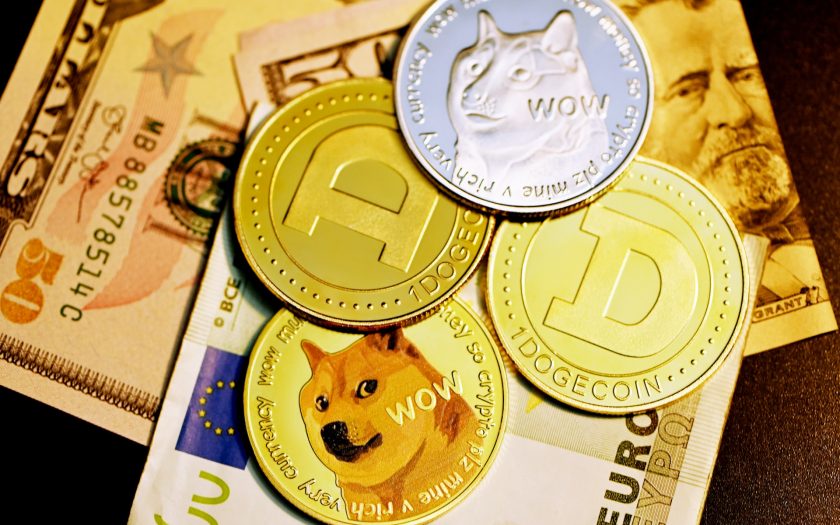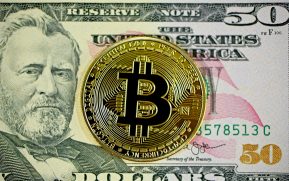
Sign in
Considering that crypto was supposed to be a world-shaking innovation, a revolutionary paradigm that was going to gut-renovate the world’s archaic payments systems, it’s surprising how little the industry’s ongoing meltdown has mattered.
Of course, it matters a great deal to people who invested in cryptocurrencies that later shed most of their value, or the various crypto companies that are halting withdrawals and defaulting on debt. I feel very sorry for their losses. But so far their suffering hasn’t proved contagious.
Early in November, after the sudden collapse of the cryptocurrency exchange FTX, Jeremy Allaire, the founder and chief executive of Circle, called this crypto’s “Lehman Brothers moment.” Within the closed world of crypto, that’s hardly an exaggeration; every day seems to bring news of fresh disaster. Yet this has been rather tame compared with the cascade of market meltdowns that followed the collapse of Lehman Brothers.
As credit dried up back then, someone in the corporate bond markets told me he had “stared into the abyss” when his trader threw corporate bonds with a face value of $1 million onto the market, and “didn’t get a single bid back (not even a penny).” Stunned, he staggered back to his office and contemplated the evaporation of everything he’d thought he’d understood.
“I realized my previous assumptions about life, society, the markets, government, etc. took way too much for granted,” he told me.
When I asked that same financier how the crypto meltdown was affecting his business today, he said “zero” — except, he added dryly, the amount of time people were wasting trading jokes about now-disgraced FTX founder Sam Bankman-Fried.
Nor does it really show up in market data. I spent some time trying to correlate the FTX collapse with various indicators, from the yields on U.S. Treasurys to the value of the dollar, looking for signs that the events of Nov. 7 — when FTX began melting down in earnest — were infecting broader markets.
It takes a lot of squinting to see much sign of the cryptopocalypse.
Here is what happened to Treasury yields in 2008 after Lehman Brothers collapsed and markets self-immolated:
You can physically see how jittery the market became. Here, in contrast, is what happened following the FTX implosion:
There is something interesting to see here: a phenomenon known as an “inverted yield curve,” where the returns on long-term Treasury debt are lower than the yields on shorter-term instruments. That’s seemingly irrational — why would you be willing to lock up your money for longer in exchange for lower returns? — and is usually a sign that investors expect a recession in the near term (or, alternatively, falling inflation). But what’s going on in the bond market isn’t about FTX; it’s about economic data and Fed policy.
Stock markets, meanwhile, have been completely unfazed by the cryptocurrency gyrations and serial business failures.
Heck, even bitcoin is looking pretty good:
It fell significantly, but then quickly stabilized. Possibly Bitcoin will end up acting like the crypto equivalent of U.S. Treasurys — where panicked investors flee when everything else goes sideways.
The rest of crypto, meanwhile, is acting like a sideshow. Sure, it might be the future. But it’s having astonishingly little impact on the present.
As my friend, Tim Lee, pointed out in a recent newsletter, “after a decade of experimentation, we seem to be no closer to building blockchain-based applications that are useful to ordinary Americans. The applications that have thrived have mostly been tools that let people speculate on the value of tokens.” Which exactly sums up what’s happening in the markets right now; this looks less like the meltdown of a major financial market than like the collapse of a major casino chain.
When a casino chain fails, its shareholders lose money, and so do any gamblers holding now-worthless chips. Its workers face unemployment and hardship; its creditors might get stiffed. But the risk is contained to those in the casino’s immediate orbit. Outside a few key commodities, no business failure can, by itself, meaningfully alter the path of the global economy.
That is, unless that business is a bank. Financial market failures have an unfortunate habit of cascading, first to nearby financial firms, and if the failures are bad, onward to other parts of the financial system. Despite the bloodbath in the crypto sector, there currently looks to be little danger of broader contagion — which tells you something important.
For most of crypto’s existence, we’ve been debating just what sort of financial product it is: a medium of exchange, like the dollar, or a store of value, like gold or stock certificates. At this point, the answer seems to be neither. Unless you are buying drugs, making ransomware payments or trying to smuggle cash out of a country with tight currency restrictions, you are almost certainly not using crypto to pay for anything. And it certainly hasn’t proved to be a good store of value, as it’s down at least two-thirds from last year’s peak — particularly disappointing since inflation is high, and bitcoin, with its inherently limited supply of coins, has long been touted as a great inflation hedge.
More broadly, crypto markets aren’t acting like financial markets, which is to say, like integral parts of a global system for moving capital from savers to investors and back again. That’s not to say crypto never will be part of that system — the technology isn’t even two decades old, and maybe it will grow into the job. But thus far we haven’t figured out a place it really fits. For the moment, what happens in crypto stays in crypto.
 How To Make Huge Profits In A Short Time With Crypto
How To Make Huge Profits In A Short Time With CryptoGet detailed training system that shows an absolute beginner (without any skill) how to make huge profits in a short time with crypto.
 Crypto + NFT Quick Start Course
Crypto + NFT Quick Start CourseThe #1 course for profit in the Crypto & NFT world - You will discover the secrets that 99% of people don’t know yet





